試す 金 - 無料
ODILON REDON
Artists & Illustrators
|September 2020
With lockdown encouraging an appreciation of gardens and nature, the work of the French symbolist painter has never been more relatable, says STEVE PILL

Odilon Redon was a man of many contradictions. He was a fine artist nourished by scientific discoveries, who made copies of nature as a way of embarking on abstract flights of fantasy. He built his reputation on macabre little monochrome drawings, yet his portfolio soon exploded into a world of fantastical colour, as vast canvases were filled with allusions to philosophy, literature and spirituality. He was schooled in the French ateliers, yet his art owed as much to his links with the American South and his fascination with Asian culture.
More than anything, however, Redon is an artist for our times: a man left troubled by the anguishes of war who found peace in his studio as he celebrated the wonders of the natural world. As our freedoms are restricted during the pandemic, Redon’s works offer us a saturated dream world into which we can escape. “My drawings inspire, and are not to be defined,” he said. “They place us, as does music, in the ambiguous realm of the undetermined.”
Bertrand-Jean Redon was born on 20 April 1840 in Bordeaux, France. His father Bertrand had made his fortune in the New Orleans slave trade, during which time he met Redon’s mother, a French Creole woman named Marie-Odile Guérin. Though the artist’s nickname was fondly derived from his mother, Odilon was a self-confessed “sad and weak child”, thought to suffer from epilepsy among other conditions. He was sent away aged just two days old and raised by his uncle on his Peyre-Lebade winemaking estate just outside of Bordeaux. Separated from his close family, it was here among the endless vineyards and marshland of France’s Atlantic coast that Redon first communed with nature. As an introverted child, he was captivated by the Médoc landscape and it would recur in haunting paintings created throughout his life.
このストーリーは、Artists & Illustrators の September 2020 版からのものです。
Magzter GOLD を購読すると、厳選された何千ものプレミアム記事や、9,500 以上の雑誌や新聞にアクセスできます。
すでに購読者ですか? サインイン
Artists & Illustrators からのその他のストーリー

Artists & Illustrators
Still life IN 3 HOURS
Former BP Portrait Award runner-up FELICIA FORTE guides you through a simple, structured approach to painting alla prima that tackles dark, average and light colours in turn
5 mins
March 2022
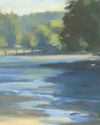
Artists & Illustrators
Movement in composition
Through an analysis of three masterworks, landscape painter and noted author MITCHELL ALBALA shows how you can animate landscape composition with movement
6 mins
March 2022
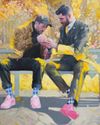
Artists & Illustrators
Shane Berkery
The Irish-Japanese artist talks to REBECCA BRADBURY about the innovative concepts and original colour combinations he brings to his figurative oil paintings from his Dublin garden studio
7 mins
March 2022
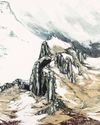
Artists & Illustrators
The Working Artist
Something old, something new... Our columnist LAURA BOSWELL has expert advice for balancing fresh ideas with completing half-finished work
2 mins
March 2022
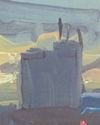
Artists & Illustrators
Washes AND GLAZES
Art Academy’s ROB PEPPER introduces an in-depth guide to incorporating various techniques into your next masterpiece. Artwork by STAN MILLER, CHRIS ROBINSON and MICHELE ILLING
7 mins
March 2022
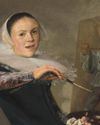
Artists & Illustrators
Hands
LAURA SMITH continues her new four-part series, which encourages you to draw elements of old master paintings, and this month’s focus is on capturing hands
7 mins
March 2022
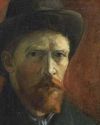
Artists & Illustrators
Vincent van Gogh
To celebrate The Courtauld’s forthcoming landmark display of the troubled Dutch master’s self-portraits, STEVE PILL looks at the stories behind 10 of the most dramatic works on display
6 mins
March 2022
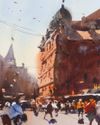
Artists & Illustrators
BRING THE drama
Join international watercolour maestro ALVARO CASTAGNET in London’s West End to paint a dramatic street scene
7 mins
March 2022
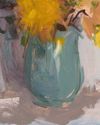
Artists & Illustrators
Serena Rowe
The Scottish painter tells STEVE PILL why time is precious, why emotional responses to colour are useful, and how she finds focus every day with the help of her studio wall
8 mins
March 2022
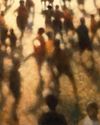
Artists & Illustrators
Bill Jacklin
Chatting over Zoom as he recovers from appendicitis, the Royal Academician tells STEVE PILL about classic scrapes in New York and his recent experiments with illustration
8 mins
March 2022
Translate
Change font size
